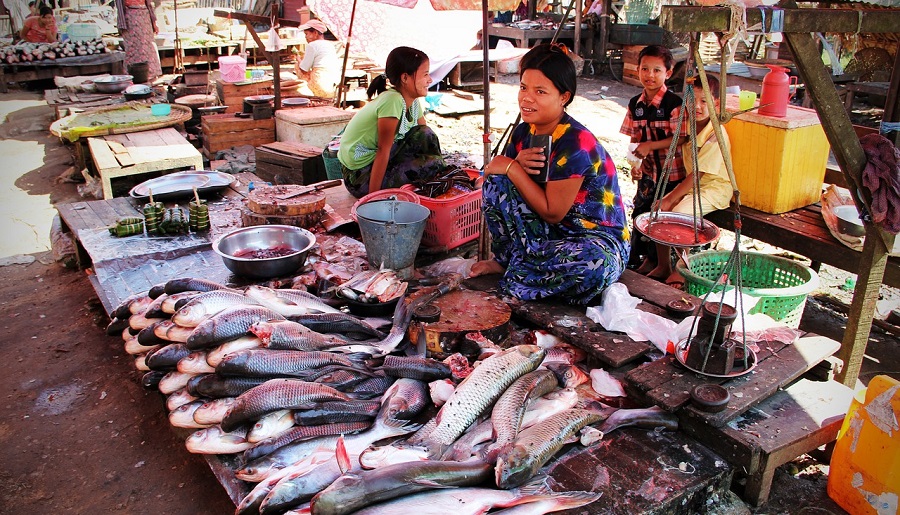Closing the high seas to all fishing and curtailing industrial fleets’ operations by eliminating the subsidies they receive, would increase the amount of fish available to small-scale fishers, boost the quality of the fish and make it more valuable, finds a new paper by the Sea Around Us Principal Investigator Daniel Pauly.
According to Pauly, who is also a professor at the University of British Columbia’s Institute for the Ocean and Fisheries, if the more than $30 billion that subsidize large-scale fisheries every year were redirected toward artisanal fisheries, the latter would be able to catch more tuna and other fish that reach coastal waters when they are not massively exploited in the high seas.
They would be also able to build, for example, an infrastructure of landing places that would allow them to take better care of their catch, supply specialized markets with a superior product and create more jobs – this while providing nutritious food for their own people and reducing dramatically the amount of fish that are discarded or turned into livestock feed.
On top of that, Pauly’s analysis finds that by taking those public funds away from the hands of industrial fishing corporations from a few dozen countries and using them to grant artisanal fishers privileged access to coastal resources, more communities around the world would be able to get higher incomes.
This course of action is outlined by the researcher in a special issue of Marine Policy that looks into the perspectives of a Blue Economy. “I don’t see industrial fisheries as actors in a sustainable economy,” Pauly says. “Industrial fisheries are footloose. They are not anchored to any given community and their mandate is solely to generate shareholder profits. This, in connection to dwindling resources, pushes them to try to reduce costs at all cost which, in turn, is the cause behind most cases of illegal fishing, slavery at sea and corrupt rule-breaking.”
In a global context where, every year, industrial fisheries discard as trash 10 million tonnes of fish and sacrifice an additional 18 million tonnes to produce feed for farm animals, while completely disregarding the fact that catches are declining at a rate of 1.2 million tonnes per year, Pauly’s proposal is a call for urgent action.
“We will have almost 10 billion people on this planet by 2050 and we cannot justify industrial fishing by saying that they will feed the masses because, with wild-caught fish, you cannot increase catches by fishing more. It is already difficult to maintain the present catches, so the future of the sector relies on promoting well-monitored artisanal fisheries that at least partly replace the industrial fisheries, generate a higher-value product, use non-destructive fishing methods and allow for the rebuilding of fish stocks,” Pauly says.
The paper “A vision for marine fisheries in a global blue economy” was published in Marine Policy doi: https://doi.org/10.1016/j.marpol.2017.11.010.



